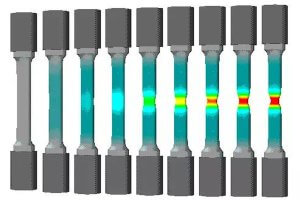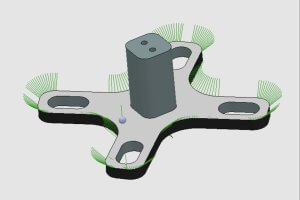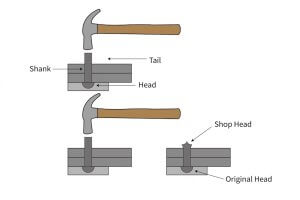Introduction In the realm of metalworking and manufacturing, two materials often dominate the conversation: Galvanized Steel and Aluminum. Both are extensively used across various industries, from construction to automotive manufacturing, due to their unique properties and benefits. This article delves into the fundamental differences between these two metals, exploring aspects like composition, durability, applications, and cost-effectiveness, providing a comprehensive understanding of their usage and suitability in different scenarios.
What are Galvanized Steel and Aluminum?
Galvanized Steel Explained Galvanized steel is essentially steel that has been coated in a layer of zinc. This galvanization process enhances the metal’s resistance to corrosion and rust. The zinc layer serves as a sacrificial barrier, protecting the steel from environmental elements. It’s a popular choice in environments where protection against rust and longevity are paramount.
Aluminum: A Quick Overview Aluminum, on the other hand, is a lightweight, silvery-white metal known for its flexibility and strength-to-weight ratio. It’s naturally corrosion-resistant and can be easily machined, making it a favorite in industries that value weight reduction without compromising on strength.
Comparing Galvanized Steel and Aluminum
Corrosion Resistance
- Galvanized Steel: Offers enhanced corrosion resistance due to its zinc coating. However, if the coating is damaged, the exposed steel can rust.
- Aluminum: Naturally corrosion-resistant, especially in environments where it forms a protective oxide layer.
Weight and Strength
- Galvanized Steel: Heavier and typically stronger than aluminum, making it suitable for applications where weight is less of a concern.
- Aluminum: Lightweight with a high strength-to-weight ratio, ideal for applications like aerospace and automotive industries where weight reduction is crucial.
Cost Effectiveness
- Galvanized Steel: Generally more cost-effective than aluminum, especially for larger or bulk applications.
- Aluminum: More expensive, but its lightweight nature can lead to cost savings in applications where reduced weight is a benefit.
Machinability and Formability
- Galvanized Steel: Can be more challenging to machine due to its hardness. However, it’s excellent for bending and forming.
- Aluminum: Easier to machine and can be extruded into complex shapes, offering great flexibility in design.
Applications Galvanized steel is often used in construction (like roofing and framing), automotive bodies, and appliances. Aluminum finds its place in aircraft and automotive parts, packaging materials, and consumer electronics.
Durability and Maintenance
- Galvanized Steel: Requires minimal maintenance due to its tough exterior. It can last decades if the zinc coating remains intact.
- Aluminum: Also low maintenance but can be more prone to dents and scratches.
Environmental Impact
- Galvanized Steel: The galvanization process involves potentially harmful chemicals, and steel production is energy-intensive.
- Aluminum: Recycling aluminum requires less energy compared to producing new aluminum, making it a more eco-friendly option.
Conclusion Both galvanized steel and aluminum have their distinct advantages and limitations. The choice between them depends largely on the specific requirements of your project, such as durability, weight, cost, and environmental impact. Understanding these key differences will guide you in selecting the most suitable material for your application, whether it be for industrial, commercial, or consumer products.
Interested in Material Selection for Your Project? If you’re in the midst of selecting materials for your project and need expert advice, don’t hesitate to reach out for professional guidance. Our team can provide insights and recommendations tailored to your specific needs and applications.
Other Articles You Might Enjoy
- Galvanized vs. Galvanneal: What Are the Differences?
In the realm of metal finishing and corrosion protection, two processes often come up: galvanizing and galvannealing. Both methods enhance the durability and longevity of steel and other metal products,…
- The Ultimate Guide to Sheet Metal Materials: Aluminum vs. Galvanized Steel
Introduction: A Brief Overview of Sheet Metal Materials in Manufacturing In the wide world of manufacturing, sheet metal materials play a pivotal role. They serve as critical components in various…
- CNC Machining Materials: Acrylic vs. Polycarbonate for Transparent Components
CNC Machining: An Introduction and the Importance of Material Type Computer Numerical Control (CNC) machining is a manufacturing process where pre-programmed computer software dictates the movement of factory tools and…









